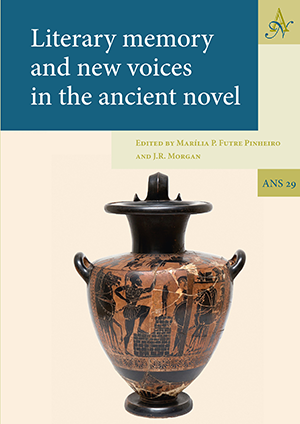The Greek and Roman novels can be seen as an important transitional moment in the trajectory from performance to reading, from oralism to textuality, that has underpinned the history of discourse in European consciousness since the 5th century BC. In different and intriguing ways, they explore the contrast, tension, conflict, competition or dialogue between modes of discourse, which frame the novel’s concern with identity and self-fashioning, as well as advertising innovation more generally.
This volume brings together an international group of scholars interested in ancient and modern constructions of orality and writing and how they are reflected and manipulated in the ancient novel. The essays deal not only with questions of genre, oral poetics and traditions, but also with how various ways of pitting or collapsing modes of representation can become loaded articulations of wider world-views, of cultural, literary, epistemological anxieties and aspirations. The contributors focus in particular on issues surrounding theatricality, gender identity, rhetorical performance, epistolarity, monumentality and power in the ancient novel.
Reviews
René Martin, Revue des études Latines 87 (2009), 395-96
Stefan Tilg, Museum Helveticum (2008) 65, 232
VICTORIA RIMELL
Introduction VII
JASON KÖNIG
Orality and Authority in Xenophon Of Ephesus 1
ANDREA CUCCHIARELLI
Omero e la Sibilla. Mimesi e oralità nella Cena Trimalchionis 23
VICTORIA RIMELL
The Inward Turn: Writing, Voice and the Imperial Author in Petronius 61
REGINE MAY
Visualising Drama, Oratory and Truthfulness in Apuleius Metamorphoses 3 86
WYTSE KEULEN
Vocis immutatio: The Apuleian Prologue and the Pleasures and Pitfalls of Vocal Versatility 106
LUCA GRAVERINI
The Ass’s Ears and the Novel’s Voice. Orality and the Involvement of the Reader in Apuleius’ Metamorphoses 138
MARKO MARINČIČ
Advertising One’s Own Story. Text and Speech in Achilles Tatius’ Leucippe and Clitophon 168
PATRICK ROBIANO
La voix et la main : la lettre intime dans Chéréas et Callirhoé 201
ROMAIN BRETHES
Poiein aischra kai legein aischra, est ce vraiment la même chose? Ou la bouche souillée de Chariclée 223
OWEN HODKINSON
‘Novels in the Greek Letter’: Inversions of the Written-Oral Hierarchy in the Briefroman ‘Themistocles‘ 257
KATHRYN CHEW
Divine Epistemology: the Relationship between Speech and Writing in the Aithiopika 279
STELIOS PANAYOTAKIS
Fixity and Fluidity in Apollonius of Tyre 299
List of Contributors 321
Indices 324
Index of Subjects 324
Index of Passages Cited 326









